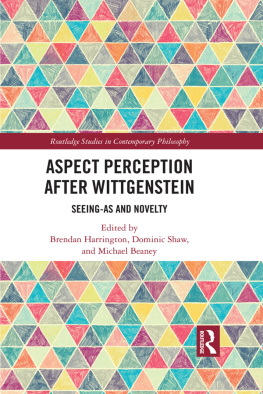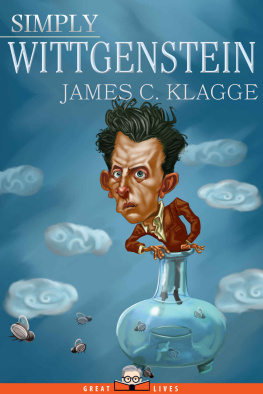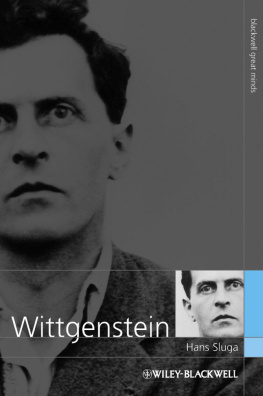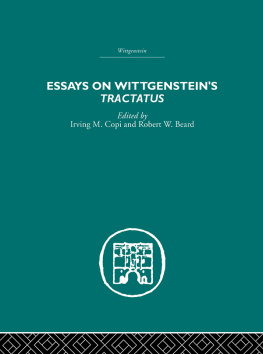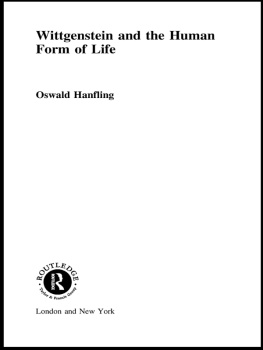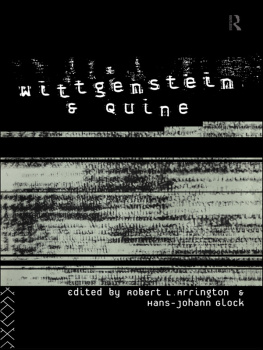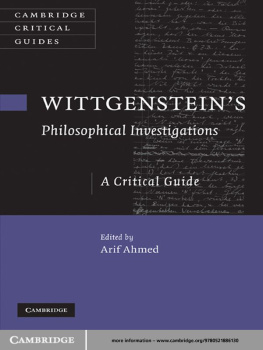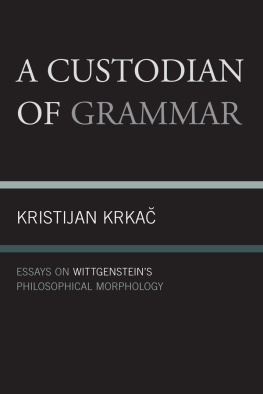Essays after Wittgenstein
Written within the tradition of Wittgensteins work, these eight original essays in philosophical psychology are either by-products of efforts to understand Wittgensteins later writings or applications of techniques and approaches derived from Wittgenstein to problems about which he did not say a great deal.
In much of his later writings, Wittgenstein was not so much trying to explain his own views as to tease, annoy, and confuse the reader into working out for himself solutions to some philosophical problems. Professor Hunter, goaded and guided by Wittgenstein, here presents in clear and plain prose the views that he has worked out on a number of different questions. Although the essays are not exegetical in form, they will be found by students of the great philosopher to contain a large number of novel suggestions as to how Wittgenstein might be interpreted; philosophers, psychologists, linguists, and mathematicians are offered an unconventional, interesting, and richly argued approach to some of the main problems in philosophical psychology.
The essays treat Meaning, Telling, Pain, Logical Compulsion, Identity, Imagining, Dreaming, and Talking. One eminent scholar has predicted that this volume may reverse the present tendency of philosophers to follow the lead of Noam Chomsky in the philosophy of language.
J.F.M. HUNTER is an Associate Professor in the Department of Philosophy at the University of Toronto.
Essays after Wittgenstein
J.F.M. HUNTER

University of Toronto Press 1973
Toronto and Buffalo
ISBN 0-8020-5278-9
LC 71-190345
Preface
The essays in this volume are either by-products of efforts to understand Wittgensteins later writings, or applications of techniques and approaches derived from Wittgenstein to problems about which he did not say a great deal.
Wittgenstein asks a great many questions that he does not answer, suggests quite a number of experiments without also suggesting what results they will yield, makes cryptic pronouncements, and in general leaves one, at all too many junctures, extremely uncertain as to what point he is making. There are many ways of removing these uncertainties, but a method I have found particularly fruitful is that of tackling the problems he is discussing myself: trying to think a problem through until I find some way of looking at it that on the one hand can be set out as an arguable position in its own right, and on the other can without undue strain be defended as an interpretation of, or as a clue to, some of Wittgensteins puzzling remarks on that and related topics.
To do this with any success one needs to be of a somewhat Wittgensteinian turn of mind; and even given that condition the procedure will not generally yield quick results. Many of the approaches one tries will either prove defective in themselves or will not check out as interpretations of Wittgenstein. Sometimes, however, the pieces seem to fall nicely into place; and at such times I have found again and again both that I had been away off in my first hunches as to what point Wittgenstein was making, and that the point I was finally disposed to attribute to him was in its own right both extremely interesting and capable of being taken very seriously.
At such junctures there arises the problem of whether to present the views reached in this manner as my own or as Wittgensteins. In these essays I have largely taken the former course; and although this may count as intellectual larceny, it is recommended by the following considerations:
I The views I am expressing are generally complicated; hence it is difficult enough to present them clearly and as an attractive philosophical position without encumbering the presentation with a great deal of close textual analysis.
II The question whether what I have to say represents a correct interpretation of Wittgenstein has generally seemed less interesting than the question of whether it makes a contribution to solving or dissolving some old (and some new) philosophical problems.
III As an inevitable by-product of the method I was following, I often found myself with more to say about a question than there is any serious textual warrant for attributing to Wittgenstein; and usually it seemed preferable to go on freely rounding out a discussion or strengthening an argument, than to confine myself to what seemed to be demonstrably Wittgensteinian.
I offer these essays, therefore, primarily as independent and I hope interesting treatments of a number of topics; but I think they may also to some extent be used as a source of suggestions as to how Wittgenstein may be understood.
In the latter capacity, while much of what the essays contain may be familiar enough to people who read Wittgenstein, and may at best serve as a fresh or as a particularly clear presentation of what is well known but hard to explain, I think in quite a number of ways the Wittgenstein I depict is someone new to the philosophical public; someone, also, who deserves to be taken a good deal more seriously than the stereotyped Wittgenstein with his repertory of dark sayings about language-games, family resemblances, depth grammar, private languages, and the meanings of words being their use.
The essay called How do you mean? seems to me to be predominantly only a fresh presentation of the familiar. Those essays that, I believe, cast the greatest amount of new light on Wittgenstein are Telling, The concept of pain, and Logical compulsion. Those in which the tendency to go on in my own way is most marked are Personal identity, Imagining, Some questions about dreaming, and On how we talk. In any of the essays, however, if I am right, one may find all of these properties.
There is a certain amount of, perhaps too much, repetition of themes. The question how we know what to say, for example, turns up in the essays on Meaning, Talking, Telling, Pain, and Logical compulsion. If this proves tedious I must beg the readers forgiveness. The good sense of eliminating such repetition by editing and cross-reference seemed to me to be counterbalanced by three main considerations. In the first place, while the same theme may be repeated, there is, I believe, very little repetition of arguments, with the result that something new is contributed by each appearance of any theme. Second, it seemed to me important to bring out the key role that certain notions do play in our thinking about a variety of questions, and that this could not be done as effectively by merely mentioning a theme at the various junctures where it is relevant as by spelling it out. Third, in view of the likelihood that essays in the volume will be studied individually, it seemed to me advisable to make each one as self-contained as possible.
I wish to express my gratitude to the University of Toronto for a leave of absence during which all but two of these essays were written; to the Canada Council for a Leave Fellowship; to the Department of Philosophy of Stanford University for their hospitality to me as a visiting scholar in the academic year 19689; and to the Department of Philosophy of San Francisco State College for the use of an office in the summer of 1969.
John Woods has generously read and commented extensively on nearly all of this material, and has goaded me at many junctures into probing more deeply than I would otherwise have done. The meticulous comments of my friend John Stratton have resulted in a very much lower level of muddle and inelegance than would otherwise have prevailed; and I have profited a great deal also from the criticisms of David Gallop, Rupert Buchanan, and Jack Canfield, and of the anonymous readers for the University of Toronto Press and the Humanities Research Council. Professor Norman Malcolms comments on an early version of the essay On how we talk were very useful to me. The manuscript is published with the help of a grant from the Humanities Research Council of Canada, using funds provided by the Canada Council, and a grant from the Publications Fund of University of Toronto Press.
Next page

